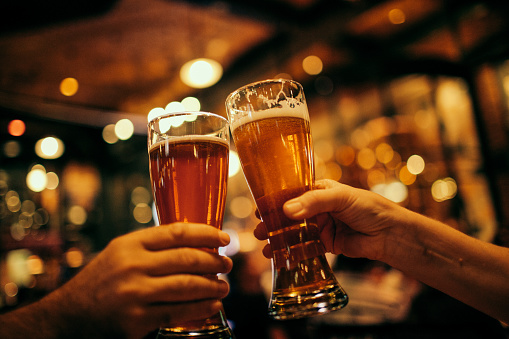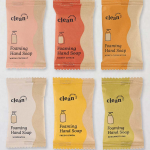Flour made from beer waste? Let’s talk about it.
Just the other day, I was doing my weekly grocery shopping at my local Safeway. I was in the baking aisle when I noticed an interesting company name — Susgrainable. The product was a bag of banana bread mix made from rescued grains from local craft breweries.

In 2018, Vancouver-locals, Marc and Clinton discovered the tremendous food waste occurring within craft breweries. Every year, 400,000 tons of grain is wasted by craft breweries, which contributes to 58% of Canada’s food waste problem. This led to the creation of Susgrainable and their upcycled barley flour. Marc and Clinton went to the root of the problem to rescue wasted grain, or spent grain, from breweries and transform it into baking mixes. In addition, spent grain is packed with fibre, protein, and minerals, which allows Susgrainable to create healthy, delicious baking mixes that positively impact the planet.
Although I didn’t purchase the banana bread mix that day, I would definitely in the future! I’m always amazed at how small brands can make a big impact. I’ve heard arguments about how some sustainable companies, such as Susgrainable, are not truly “sustainable” because of their plastic packaging. However, it could be that there were operational challenges that prevented them from using biodegradable packaging.

Recently, I went to a CUS Sustainability event called Shop Talk, where panellist speakers, Ian Walker from Hippie Snacks and Jin Sandhu from Blume, discussed sustainability in business. In this conversation, one of the topics that the two companies discussed was packaging. In a perfect world, we would want a sustainable product in biodegradable packaging that retains the freshness and quality of the product the same way plastic packaging would and is cost-effective. However, current biodegradable packaging options don’t provide those qualities. Choosing between quality and sustainability is a tough decision for businesses to make, especially small businesses. When it comes to small businesses, they will always choose quality because the packaging problem is the least of our concerns, and that’s something that consumers need to realize.
Overall, we should be a lot less critical of small businesses and instead challenge bigger retailers to take on sustainability challenges. Perhaps major brewing groups such as Molson-Coors, Heineken, or AB InBev can take on this challenge to upcycle their spent grain and find sustainable packaging that retains the grain’s freshness.





